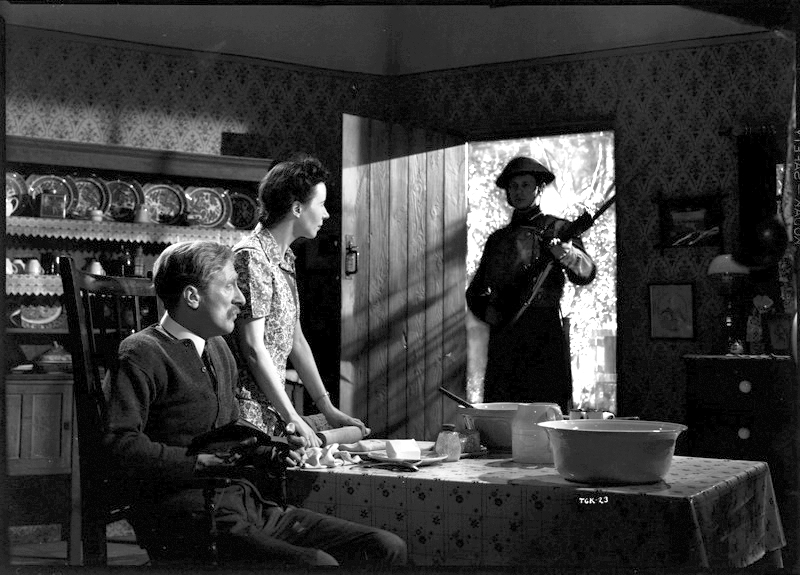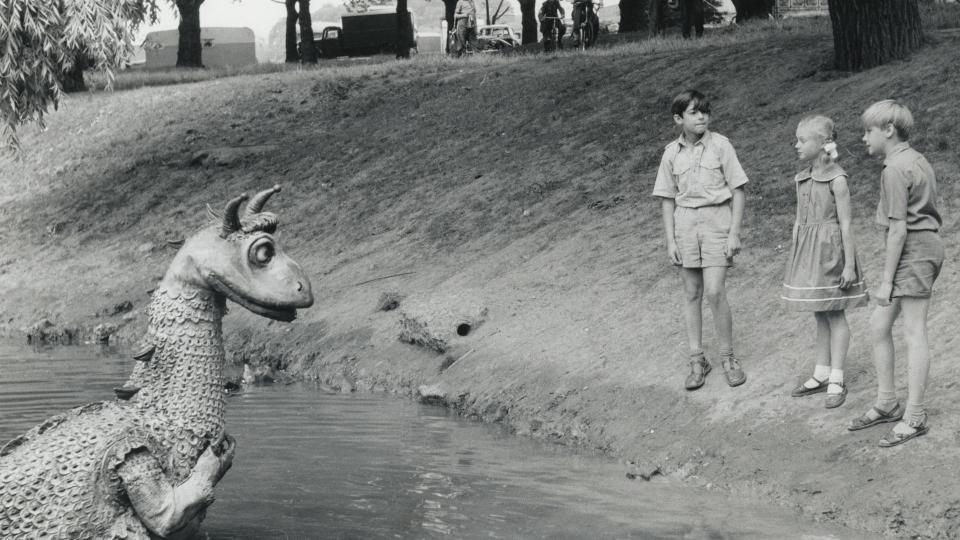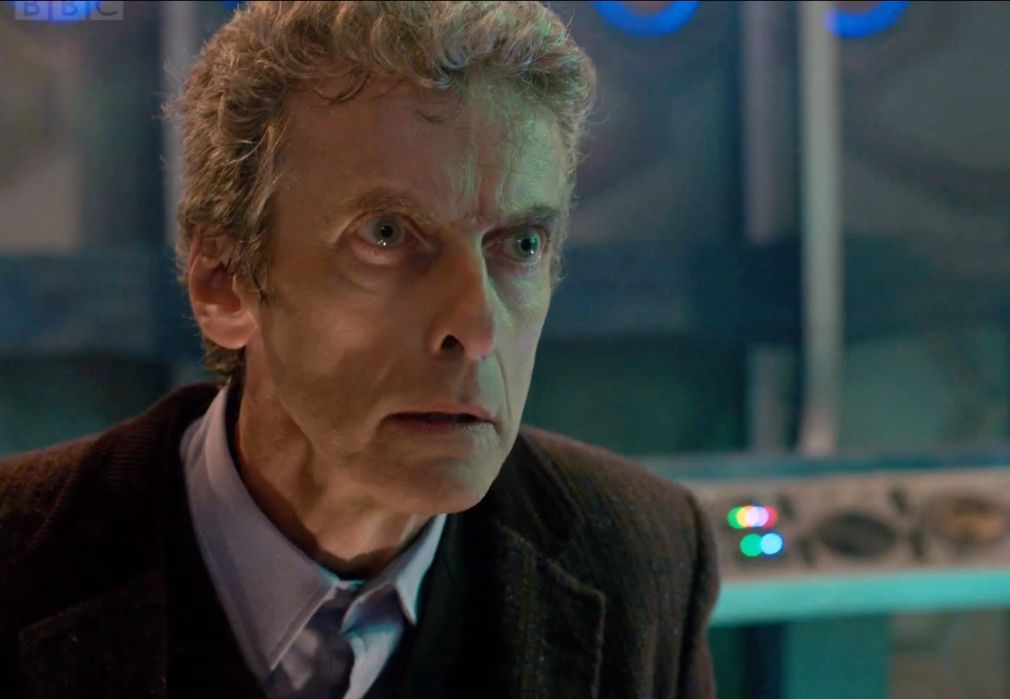Post by teleadm on Feb 4, 2022 22:35:59 GMT
A journeyman director through cinema who made his mark here and there, and especially in Britain during the 30's and 40's.
Rio de Janeiro born Alberto Cavalcanti 125 years ago, was the son of a prominent mathematician who thought his son was too interested in politics and sent him to schools in Switzerland and France to knock that out of him, instead his son became interested in avant-garde film movements, corresponding with Marcel L'Herbier. He even was employed at Brazil's consulate in Liverpool.
His trademark was a blend of poetry, realism and fiction, at his best.

Alberto Cavalcanti (1897–1982)

One of his first notable works was the experimental documentary Rien que les heures (Nothing But Time) 1926, showing the life of Paris through one day in 45 minutes.
He came to England to work for the GPO Film Unit, headed by John Grierson. He spent seven years in all kind of capacities making documentaries, after a stint at Paramount Picture's French studios that ended in 1933.
In 1940, he joined Ealing Studios, under the leadership of producer Michael Balcon.

Went the Day Well? 1942 based on a story by Graham Greene. The film shows a Southern English village taken over by German paratroopers, reflecting the greatest potential nightmare for the British public of the time.
Also notable for its unusually frank, for the time, depiction of ruthless violence.

Champagne Charlie 1944, a musical loosely based on the rivalry between the popular music hall performers George Leybourne (born Joe Saunders), who was called "Champagne Charlie" (played by Tommy Trinder) because he was the first artist to perform the song of that title, and Alfred Vance, who was known as "The Great Vance" (played by Stanley Holloway).
The film is notable for its realistic approach to showing details of the audiences, venues and staff, with copious quantities of food and drink providing a vicarious delight for wartime audiences.

Dead of Night 1945, an anthology of remarkable stories. He shared directors credits with Charles Crichton, Basil Dearden and Robert Hamer. Cavalcanti directed the Christmas Party sequence and the famous ventriloquist sequence.
A classic in many Horror lovers books!

Nicholas Nickleby or The Life and Adventures of Nicholas Nickleby 1947, the first sound adaptation of Charles Dickens famous novel, at least in English. With Sir Cedric Hardwicke as evil Ralph Nickleby, and Derek Bond as Nich. (The recently departed Sally Ann Howes played his sister Kate Nickleby).
Reviews at the time thought it fell flat compared to David Lean's recent adaptations of Dickens' novels, but was impressed by the atmosphere of Victorian London it created.
In 1946, he left Ealing after a dispute about money. He went on to direct three more films in the UK, before returning to Brazil in 1950.

They Made Me a Fugitive (I Became a Criminal) 1947, British noir set in post war-Britain and how life could go wrong, as a former RAF airman joins black-market smugglers. Said to be one of Trevor Howard's best roles.
In Brazil, he became head of production for Companhia Cinematográfica Vera Cruz, though the company eventually became insolvent.
He directed three movies in Brazil during this time, Simão o Caolho 1952, O Canto do Mar 1953 and Mulher de Verdade 1954.This OP is too unfamiliar with Brazilian movies of the 1950's to write anything about them.
After being blacklisted in Brazil as a communist, he moved back to Europe.

La prima notte aka Les noces vénitiennes (Venetian Honeymoon) 1959 French-Italian comedy starring Vittorio de Sica, Martine Carol, Jacques Sernas and Claudia Cardinale.

Herr Puntila and His Servant Matti 1960 based on a play by Bertolt Brecht. It was made at the Soviet-controlled Rosenhügel Studios in Vienna. Production began in 1955, but wasn't completed until 1960. Approved by Brecht, but he never lived to see the finished movie.

Cavalcanti returned to Britain and made a movie for Children's Film Foundation (CFF), The Monster of Highgate Ponds 1961.
He directed another two movies in Israel, and two plays for French Television plus on Brazilian Documentary.
There are two printed biographies, non to OP knowledge in English, an East German in 1962 and an Italian from 1988.
Adds an article from The Guardian from 2010

Thanks for watching!
Opinions of all kinds are as always welcome
Rio de Janeiro born Alberto Cavalcanti 125 years ago, was the son of a prominent mathematician who thought his son was too interested in politics and sent him to schools in Switzerland and France to knock that out of him, instead his son became interested in avant-garde film movements, corresponding with Marcel L'Herbier. He even was employed at Brazil's consulate in Liverpool.
His trademark was a blend of poetry, realism and fiction, at his best.

Alberto Cavalcanti (1897–1982)

One of his first notable works was the experimental documentary Rien que les heures (Nothing But Time) 1926, showing the life of Paris through one day in 45 minutes.
He came to England to work for the GPO Film Unit, headed by John Grierson. He spent seven years in all kind of capacities making documentaries, after a stint at Paramount Picture's French studios that ended in 1933.
In 1940, he joined Ealing Studios, under the leadership of producer Michael Balcon.

Went the Day Well? 1942 based on a story by Graham Greene. The film shows a Southern English village taken over by German paratroopers, reflecting the greatest potential nightmare for the British public of the time.
Also notable for its unusually frank, for the time, depiction of ruthless violence.

Champagne Charlie 1944, a musical loosely based on the rivalry between the popular music hall performers George Leybourne (born Joe Saunders), who was called "Champagne Charlie" (played by Tommy Trinder) because he was the first artist to perform the song of that title, and Alfred Vance, who was known as "The Great Vance" (played by Stanley Holloway).
The film is notable for its realistic approach to showing details of the audiences, venues and staff, with copious quantities of food and drink providing a vicarious delight for wartime audiences.

Dead of Night 1945, an anthology of remarkable stories. He shared directors credits with Charles Crichton, Basil Dearden and Robert Hamer. Cavalcanti directed the Christmas Party sequence and the famous ventriloquist sequence.
A classic in many Horror lovers books!

Nicholas Nickleby or The Life and Adventures of Nicholas Nickleby 1947, the first sound adaptation of Charles Dickens famous novel, at least in English. With Sir Cedric Hardwicke as evil Ralph Nickleby, and Derek Bond as Nich. (The recently departed Sally Ann Howes played his sister Kate Nickleby).
Reviews at the time thought it fell flat compared to David Lean's recent adaptations of Dickens' novels, but was impressed by the atmosphere of Victorian London it created.
In 1946, he left Ealing after a dispute about money. He went on to direct three more films in the UK, before returning to Brazil in 1950.

They Made Me a Fugitive (I Became a Criminal) 1947, British noir set in post war-Britain and how life could go wrong, as a former RAF airman joins black-market smugglers. Said to be one of Trevor Howard's best roles.
In Brazil, he became head of production for Companhia Cinematográfica Vera Cruz, though the company eventually became insolvent.
He directed three movies in Brazil during this time, Simão o Caolho 1952, O Canto do Mar 1953 and Mulher de Verdade 1954.This OP is too unfamiliar with Brazilian movies of the 1950's to write anything about them.
After being blacklisted in Brazil as a communist, he moved back to Europe.

La prima notte aka Les noces vénitiennes (Venetian Honeymoon) 1959 French-Italian comedy starring Vittorio de Sica, Martine Carol, Jacques Sernas and Claudia Cardinale.

Herr Puntila and His Servant Matti 1960 based on a play by Bertolt Brecht. It was made at the Soviet-controlled Rosenhügel Studios in Vienna. Production began in 1955, but wasn't completed until 1960. Approved by Brecht, but he never lived to see the finished movie.

Cavalcanti returned to Britain and made a movie for Children's Film Foundation (CFF), The Monster of Highgate Ponds 1961.
He directed another two movies in Israel, and two plays for French Television plus on Brazilian Documentary.
There are two printed biographies, non to OP knowledge in English, an East German in 1962 and an Italian from 1988.
Adds an article from The Guardian from 2010

Thanks for watching!
Opinions of all kinds are as always welcome





